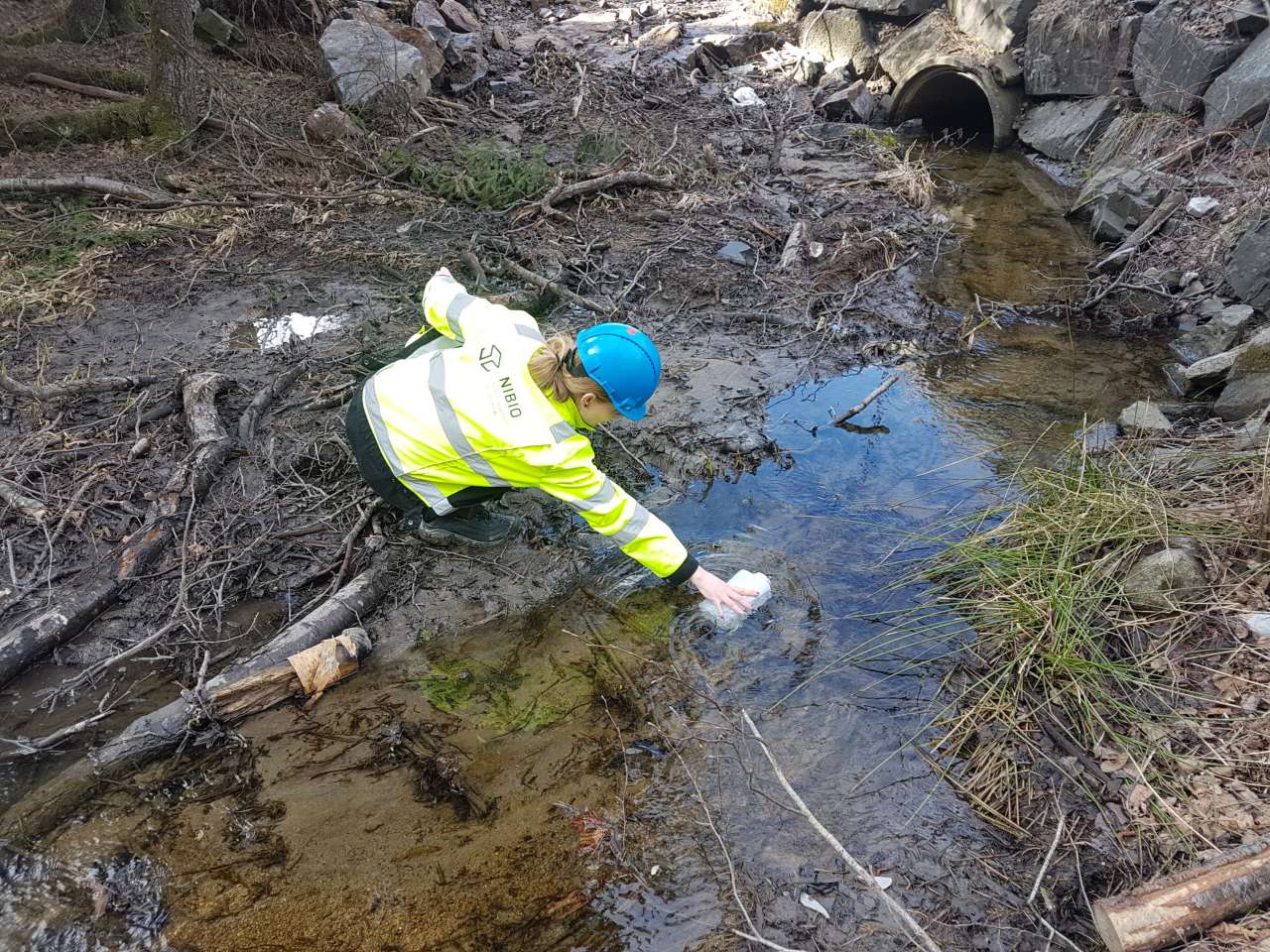Aquatic environment and road construction

Photo: Jony Moen/Nye Veier
NIBIO is the specialist responsible for coordinating preliminary studies of the aquatic environment along the Tvedestrand–Bamble section of the E18. The aim is to establish the chemical and ecological status of watercourses, including natural values, alien species and important fish stocks.
NIBIO and FAUN are performing most of the pre-investigations, which include water sampling, automatic water monitoring, studies of the biology and biological quality parameters in rivers and lakes, environmental DNA, as well as studies and descriptions of substrate and habitats.
The studies along the new 55 km stretch of the E18 between Tvedestrand and Bamble involve around 70 stations in rivers, streams and lakes.
Project manager Roger Roseth explains that the ecological condition of many of the aquatic environments alongside the new E18 was unknown at the start.
"This is why it was important to perform pre-investigations of the freshwater environment, in order to establish their status so that we will be able to tell how the construction work may affect the ecology" he says.
Bottom-dwelling animals, benthic algae and fish tell us what kind of ecological condition a stream is in. Since quite a lot of the lakes and streams in the area are under-researched, they must be studied in order to see whether they contain aquatic life like fish or freshwater mussels.
One method that has been used is the collection of environmental DNA, with the assistance of the Norwegian Institute for Nature Research (NINA). Filtering water through a fine-meshed filter collects the DNA of organisms that live there. Genetic analyses can then be used to determine or assess which species the DNA comes from.
NIBIO has been involved in several similar monitoring projects in the past, including studies connected to the development of the E18 between Rugtvedt and Dørdal in Bamble municipality.
Contacts

Contacts

